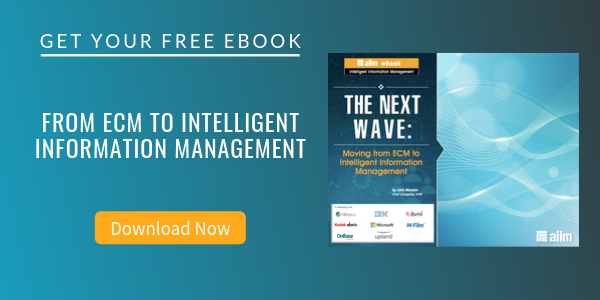
From Customers to Partners: How to Engage Stakeholders in ECM
Enterprise Content Management (ECM)
Organizations are in constant flux due to the variety of external forces that impact the policies, products, programs, and services they provide. In the public sector, there has been a notable shift in recent years to think about members of the public as customers versus clients, and to apply best practices around customer service often championed in the private sector to these interactions between staff and the community. Private sector organizations continue to experiment with parameters of the customer experience, and non-profit organizations strive to find the balance between these sectors. These external relationships also impact internal interactions within organizations where traditional bureaucratic structures are being managed with a customer service mindset.
You may be asking at this point what all this has to do with ECM? While a customer service focus has always been critical to ECM implementations that commonly rely on efforts like gathering business requirements and tracking workflow processes to determine next steps, we have an opportunity to expand beyond this customer-centered approach and move our relationships with stakeholders to the next level: that of a partner. There are three major objectives related to stakeholder engagement that can help you work towards successful partnerships in your organizations. These objectives include:
- Understanding the variables that limit customer involvement in ECM projects
- Recognition of the challenges that customer apathy or concern brings to ECM implementations
- Transforming customers into active partners
Variables that limit customer involvement in ECM projects
Successful ECM projects require participation from the end-users to work. If you have tried to implement a project without their involvement, I suspect that you may have run into challenges as those projects move forward. Lack of knowledge about ECM, constraints around time/scope/budget, lack of buy-in; these are all common barriers to stakeholder participation. Considerations of non-traditional project constraints are also important as well as you develop, sell, and support implementation plans.
Challenges that customer apathy brings to ECM implementations
What happens if you have large segments of your organization passively accepting or actively resisting changes to business processes? Is passive acceptance better or worse than active resistance? Although the answer may seem straightforward, your organization’s capacity to respond to these different scenarios can make all of the difference in how you prepare for and hopefully minimize these challenges.
Transforming customers into active partners
Active partnerships create different dynamics in an organization than customer/service relationships. Think about the last time you were a customer: how did this impact your expectations and actions compared to an experience when you played a role as a partner? Words can be powerful, and while serving your customers is important and valuable, the assumptions and perceptions attached to this interaction will require different techniques than active partnerships to be successful.
About John Mancini
John Mancini is the President of Content Results, LLC and the Past President of AIIM. He is a well-known author, speaker, and advisor on information management, digital transformation and intelligent automation. John is a frequent keynote speaker and author of more than 30 eBooks on a variety of topics. He can be found on Twitter, LinkedIn and Facebook as jmancini77. Recent keynote topics include: The Stairway to Digital Transformation Navigating Disruptive Waters — 4 Things You Need to Know to Build Your Digital Transformation Strategy Getting Ahead of the Digital Transformation Curve Viewing Information Management Through a New Lens Digital Disruption: 6 Strategies to Avoid Being “Blockbustered” Specialties: Keynote speaker and writer on AI, RPA, intelligent Information Management, Intelligent Automation and Digital Transformation. Consensus-building with Boards to create strategic focus, action, and accountability. Extensive public speaking and public relations work Conversant and experienced in major technology issues and trends. Expert on inbound and content marketing, particularly in an association environment and on the Hubspot platform. John is a Phi Beta Kappa graduate of the College of William and Mary, and holds an M.A. in Public Policy from the Woodrow Wilson School at Princeton University.



